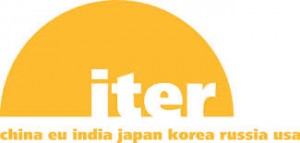Eleven months ago, the U.S. signed an accord with Russia to promote nuclear cooperation through public diplomacy. However, due to the recent confrontation over Russia’s actions in Ukraine, this accord has been halted. The agreement allowed scientists to gain access to nuclear facilities of the other country and also allowed scientists to work together in an attempt to create a “defense from asteroids” using a warhead to protect Earth from any incoming asteroid. Since March of this year when Russia annexed Crimea, the Department of Energy has cancelled nuclear meetings, symposia, and lab visits with Russia.
One example of a scientific project which has suffered from this break in public diplomacy is ITER, an international fusion project which aims use the power of the sun through nuclear fusion to generate 10 times more power than is put into a reactor. The project’s leader Osamu Motojima stated he believes that, “ITER should be beyond international tensions,” yet the complex relationship between the seven ITER members “makes it complex to fulfill the project’s big objective: to ensure all intellectual property obtained is available equally to all 7 members.”
Although the United States rightly denounces Russia’s actions for invading a sovereign territory, the fact of the matter is that both countries still need to cooperate in a variety of areas. For instance, in order to protect the security of the international community, Russia and the U.S. will need to continue to work together in order to solve the Iranian nuclear crisis through diplomatic means. It would seem unwise to forsake cooperation between the two countries at such a critical time, when Russia could potentially derail the negotiation process for their own interests.
Public diplomacy efforts involving science can help reduce post-Cold War tensions, if Russia sees it in its mutual interest to allow them. Given the challenges the United States faces with Russia, perhaps now is an excellent time to encourage public diplomacy as part of a long-term strategy to set Russia on the right path.
Theresa Shaffer is a nuclear security researcher and intern at the American Security Project. She is a recent graduate of the University of North Texas with degrees in International Studies and French. You can follow her on twitter here: Theresa Shaffer
The post A Time for Public Diplomacy Between the U.S. and Russia appeared first on American Security Project.




